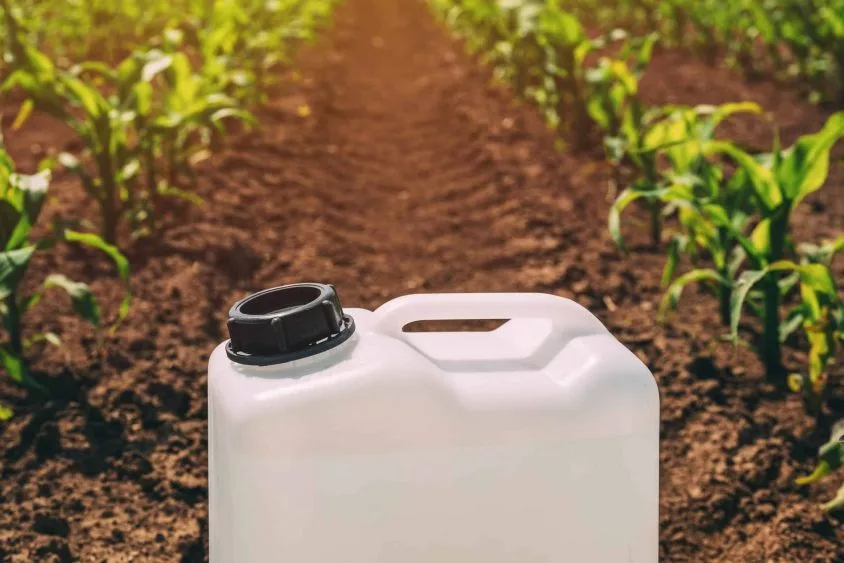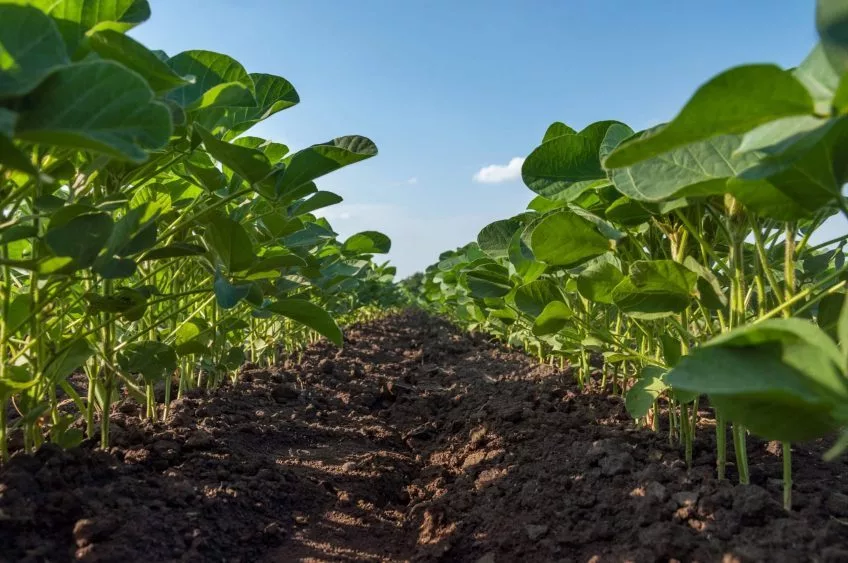(WASHINGTON D.C.) — On Tuesday, corn and soy grower leaders were among those who testified to the importance of 2,4-D as a key herbicide used by farmers and that they would suffer if the U.S. government granted a petition to place anti-dumping and countervailing duties on imports of that key herbicide.
The International Trade Commission is weighing a petition from Corteva Agriscience that says the company was harmed by imports of the herbicide 2,4-D. Growers have said they cannot solely rely on Corteva Agriscience, the only domestic supplier of 2,4-D, to meet nearly all the market’s needs. Farmers have also argued that 2,4-D has many benefits, including preserving soil health, which helps farmers achieve successful yields.
“First, 2,4-D is a growth regulator that targets broadleaf weeds—which is a type of weed that causes significant harm to corn and 2,4-D has a minimal effect on grasses,” Illinois farmer and NCGA President Kenneth Hartman Jr. testified. “This makes 2,4-D useful for corn, which is a grass, because it will kill the weeds but not the corn plants.”
Caleb Ragland, American Soybean Association president and Kentucky soybean farmer, also explained the predicament of he and fellow farmers trying to effectively grow their crops. “Weeds take vital resources like nutrients, water, and growing space from our crops,” Ragland explained. “If not controlled, they can destroy about 80% of a soybean harvest. That’s why herbicides are essential to maximizing crop health and yields. Until last year, dicamba was a key herbicide in soybean farming. For perspective, in 2021 it was used on more than 50 million acres of soybeans in the U.S. But in 2024, a federal district court vacated dicamba’s registrations with the Environmental Protection Agency. That unavailability has left a massive gap in the herbicide supply for farmers, which means we need reliable access to herbicides like 2,4-D now more than ever.”
Hartman and Ragland’s testimony came during a final hearing hosted by the ITC regarding the antidumping and countervailing duties brought against imports of 2,4-D acids from China and India. Both ASA and the National Corn Growers Association leaders appeared in person to offer testimony opposing the AD/CVD petition and urging the ITC to make a negative determination in the final ruling of the case.
“The use of 2,4-D is more environmentally friendly and climate-smart than the alternative, which is tilling,” Hartman told commissioners. “No-till farming uses herbicides to kill weeds while minimizing soil disturbances. This is important because keeping soil intact reduces soil erosion.”
Hartman further noted that the duties come as farmers navigating tough economic times. “Corn prices are down 40% since 2022 and costs of farming, including inputs like herbicides, are at all-time highs,” Hartman said. “New herbicide tools are slow to come to the market, so placing new duties on 2,4-D would set American farmers back even further.”
Ragland noted during his testimony that the domestic company at the heart of the investigation “makes good products that help many farmers” and enumerated the positive characteristics of the company’s seed trait genetics, herbicide products, and proprietary 2,4-D choline formulation. However, he questioned the company’s need for trade protection, especially to the detriment of American farmers.
“For soybean farmers, times are already tough. Production costs are nearing record highs,” said Ragland. “The prices of soybeans have decreased more than 40% in the past three years. Our herbicide options are becoming increasingly limited. Imports of 2,4-D products do not compete at all with Corteva’s 2,4-D choline product that is required by law and by contract to be used with Corteva’s Enlist soybeans—and which have a 60% market share that continues to increase every year. New duties on 2,4-D would make things even harder, further disrupting our access to reliable herbicide tools in our toolbox.”
Given dicamba’s unavailability and 2,4-D’s reliable weed control compared to the few alternatives left on the market, demand for 2,4-D herbicides has been growing and is expected to grow even more in the years ahead. That makes access to multiple sources of the herbicide important according to corn and soy leaders. ASA remains concerned with the rising costs of inputs for U.S. soybean growers. Duties imposed as part of this case could not come at a worse time for farmers, as trade uncertainty and tariffs continue to place financial pressure on U.S. agriculture.
ITC will issue either a negative or affirmative determination of material injury in six weeks. If an affirmative determination is issued, the U.S. Department of Commerce would then determine and issue final duty rates.





